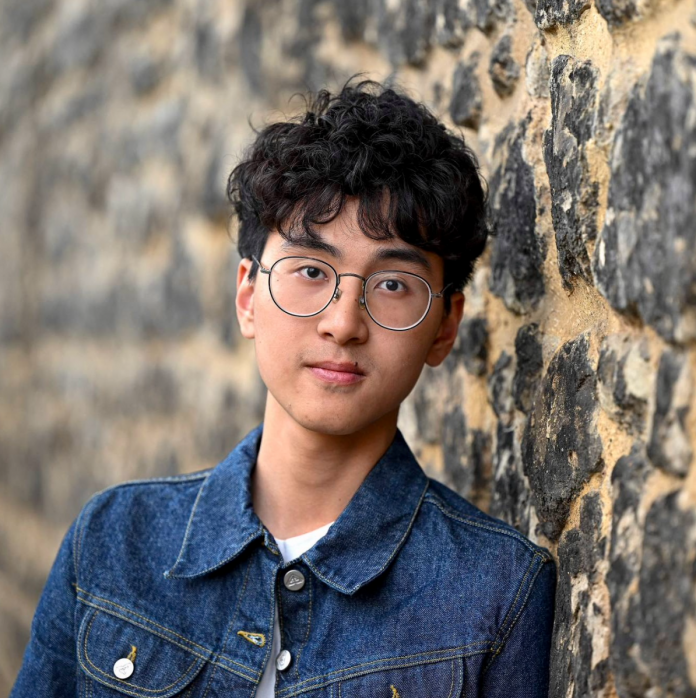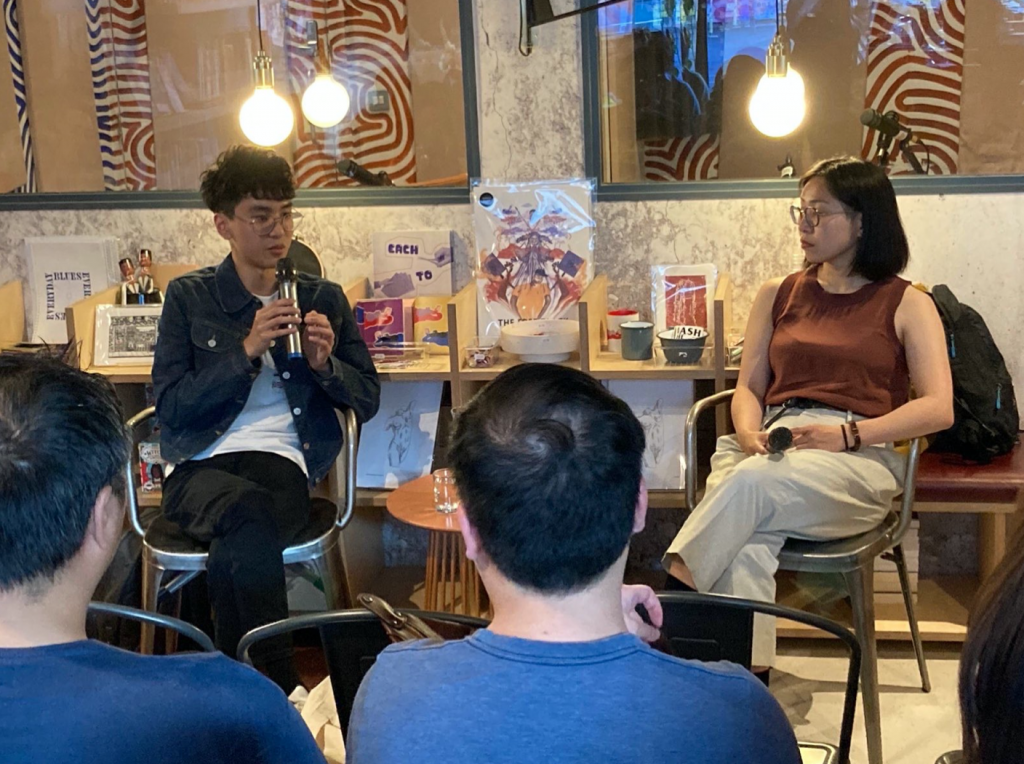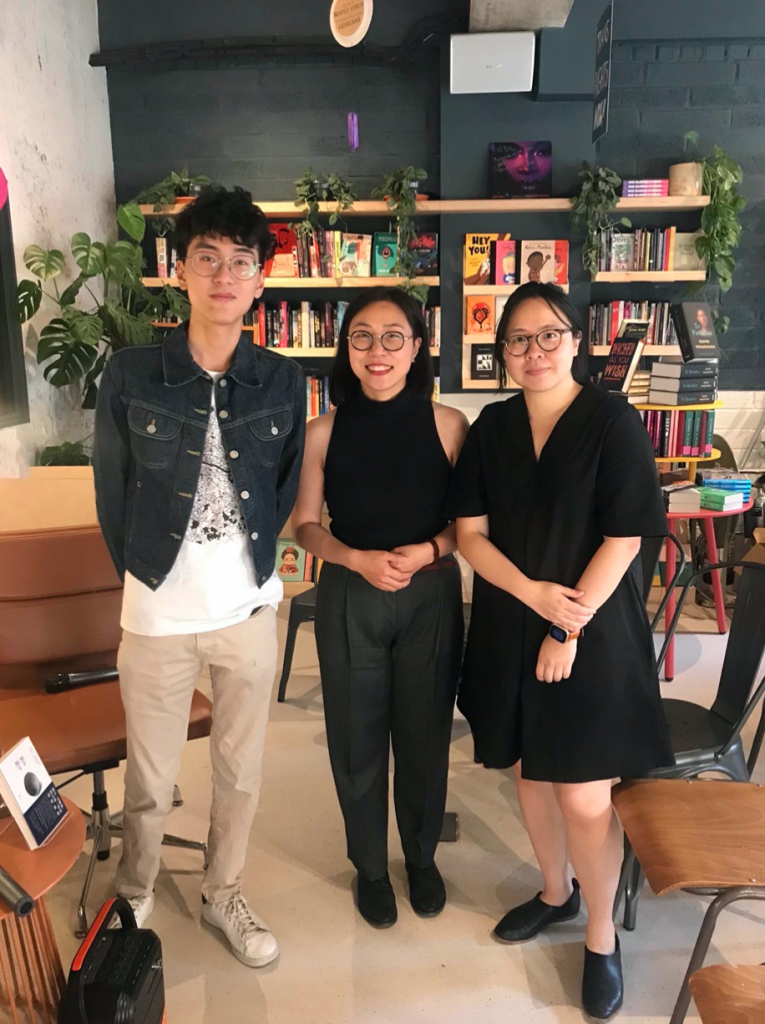
By Victoria Fong
Eric Yip Chun-wai has become the youngest winner of the National Poetry Competition held by the Poetry Society in the United Kingdom.
Yip was informed that he won the award in February 2022. Instead of sharing the good news right away, Yip kept it a secret, even to his family.
He received messages in his family group chat on WhatsApp during his trip back to Cambridge after attending the award ceremony in London on 31 March 2022. He then revealed his victory to his family when they asked if he had become a headline.
“I feel really bad not being the first to tell my family, but I was very naïve, and I thought no one in Hong Kong would care about it and I could still be the first to tell them about a day after the ceremony,” says Yip.
“I was curious about poetry competitions in the UK when I first arrived, so I googled it. The National Poetry Competition came as the first finding result, so I thought I’d give it a try,” he recalls.
In his winning poem “Fricatives”, Yip attempts to explore ideas about language and submission within a Hong Kong subtext. He wrote the poem mainly during September 2021 before learning about the competition and revised it on and off for weeks before the competition deadline, 31 October 2021.
According to the Poetry Society, the National Poetry Competition 2021 had 16,729 poems entering the competition with 7,012 poets from 100 countries. The competition has been running since 1978, and judges read all the entries anonymously before selecting the winning poems.
He also read some analysis of his poem “Fricatives” online posted on Facebook.
“Sometimes, when people discuss the poem, they say, ‘Eric did this…’. That makes me feel like someone is shining a flashlight in my face,” says Yip, who is now studying Economics at the University of Cambridge.
“It’s very interesting to read different perspectives. I have my own thoughts with the poem, and some people read it in a way that I don’t necessarily agree with, but that’s fine. Once the poem is published, I don’t have the authority on how it is meant to be read,” the Year Two university student says.

New opportunities
Since winning the competition, Yip has befriended other poets including Hong Kong poets Jennifer Wong and Mary Jean Chan. He also did a virtual reading with Chinese American poet Chen Chen and English poet Andrew McMillan.
“The opportunity to talk to other poets and to meet other poets is surreal to me. Before the competition, I could have never imagined this happening,” he says.
“I was really starstruck. It’s very lucky for me to be able to chat with the poets whose work I love and respect. It’s just great to have someone who also clearly loves poetry and knows a lot about poetry,” he says.
While Yip finds these discussions insightful, he also describes them as “nerdy”. “We talk about poets we like and geek out about poetry and books,” he says.

As a person who has never published any poems before, Yip thinks the poets he met has helped him learn how to become a poet.
“I’ve been trying to learn more about the ‘logistics’ of poetry such as submitting to journals and attending poetry readings. I think the poets have a lot more experience since they have published poems and books before,” he says.
How it began
Yip stumbled upon Hong Kong-British poet Sarah Howe’s work online around 2018 when he was 16 years old. Howe’s debut collection Loop of Jade, which won the T. S. Eliot Prize for Poetry in 2015 held by the UK organization Poetry Book Society, inspired him to write English poetry about Hong Kong.
“There are some poems in her collection describing life and sceneries in Hong Kong. That was my first-time seeing Hong Kong being described in an English poem. I feel like that gave me permission to write about Hong Kong in English poetry,” he adds.
When Yip was in Hong Kong, he used to translate English poems into Cantonese to his mother, who particularly enjoyed poems written by Sarah Howe. “Sarah Howe’s poems about tenement buildings in Hong Kong or shared kitchens and communal spaces evoke a lot of personal memories for my mum. She would say, ‘Oh, I recognize what she is talking about! A lot of the essence and the humanity of poetry are not bounded by language,” he says.
Encouraging young poets
Yip hopes he can be an encouragement to aspiring poets in Hong Kong.
“There is a part of me that hopes if there is someone who writes poem and feels like no one cares about this, and perhaps when they hear the news about a Hong Kong teenager winning a competition in the UK, they will feel encouraged to know there are other people from Hong Kong who also read and write poetry,” he says.
Yip stores his poems in a Google Drive and does not have an urgent plan to publish a book.
“I feel like I am not ready because I don’t think my poems are at a level that I want them to be. I get dissatisfied with my work very easily. I know that one of the biggest mistakes one can make is to rush things.”
“I think a book of poems is a milestone. That is something I want to work towards, but I wouldn’t put a date on this,” he says.
Edited by Gloria Chan
Sub-edited by Jack Deng






































